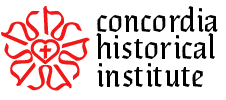996 Gregory V (c. 972–999) became the first German pope.
1491 Kongo monarch Nkuwu Nzinga was baptized by Portuguese missionaries, adopting the baptismal name ofJoão I.
1512 The Fifth Lateran Council, the last attempt at papal reform before the Lutheran Reformation, opened in Rome.
1515 The papal encyclical Inter Sollicitudines was published by Pope Leo X (1475–1521). It stated that all writings were to be examined by the Catholic church prior to their printing.
1561 Nikolaus Hermann, hymnist and composer, died in Joachimsthal, Bohemia (b. 1500).
1622 Pedro Páez, Spanish Jesuit missionary in Ethiopia and the first European to see and describe the source of the Blue Nile, died (b. 25 May 1564).
1675 A Massachusetts law went into effect requiring church doors to be locked during services. The law was enacted because too many people were leaving before the sermons and the long service were over.
1721 Hans Poulsen Egede (1686–1758), Lutheran Apostle of Greenland, set sail from Denmark with a party numbering forty-six people.
1738 English preacher George Whitefield (1714–1770), one of the most famous religious figures of the 1700s, arrived in America for his first of seven visits.
1832 Edward Irving (1792–1834), later the founder of “The Holy Apostolic Church” or “Irvingites,” was deemed unfit to retain the pastorate of Regent Square Church (Presbyterian) due to Pentecostalism and his view regarding the human nature of Christ.
1850 Sixteen-year-old Charles H. Spurgeon (1834–1892) made his public profession of faith in Jesus Christ in the Artillery Street Primitive Methodist Chapel in Colchester, England.
1856 Dwight L. Moody (1837–1899) was taken into church membership. Immediately after his conversion, he began to teach Sunday school and evangelize others.
1861 The Confederate Congress approved a bill installing chaplains in Confederate armies. Chaplains had not been common in the American military, but they became a permanent fixture during and after the Civil War. Between 100,000 and 200,000 Union soldiers and approximately 150,000 Confederate troops were converted during wartime revivals.
1864 Henry W. Horst, Missouri Synod lay leader and member of the synod’s Board of Directors, was born in Rendsburg, Germany (d. 26 August 1949).
1878 William Whiting (b. 1 November 1825), English poet and music instructor, died.
1891 Friedrich August Crämer (or August Friedrich) died (b. 26 May 1812). He came to America under Wilhelm Löhe’s influence after serving as a tutor in England. He founded Frankenmuth, Michigan, and served as pastor there. Later he was presidentof the Missouri Synod’s practical seminary at Fort Wayne, Indiana; Saint Louis; and Springfield, Illinois.
1895 Cornelius Van Til, Christian Reformed theological educator, was born in the Netherlands (d. 17 April 1987).
1900 Johannes Quasten, historian of the early church, was born at Homberg, Germany (d. 10 March 1987). In 1938 he began teaching ancient church history at the Catholic University of America in Washington, D.C. He authored the definitive series on the theology and spokesmen of the early church: Patrology (1950-1983).
1907 Georg Sverdrup, president of the Norwegian Lutheran Free Church, died (b. 16 December 1848, Balestrand, near Bergen, Norway).
1963 The Japan Evangelical Lutheran Church and the Tokai Evangelical Lutheran Church united to form a new Japan Evangelical Lutheran Church.
1983 American Catholic bishops issued a pastoral letter calling for no nuclear weapons. The National Conference of Catholic Bishops voted 238 to 9 to approve The Challenge of Peace: God’s Promise and Our Response.


